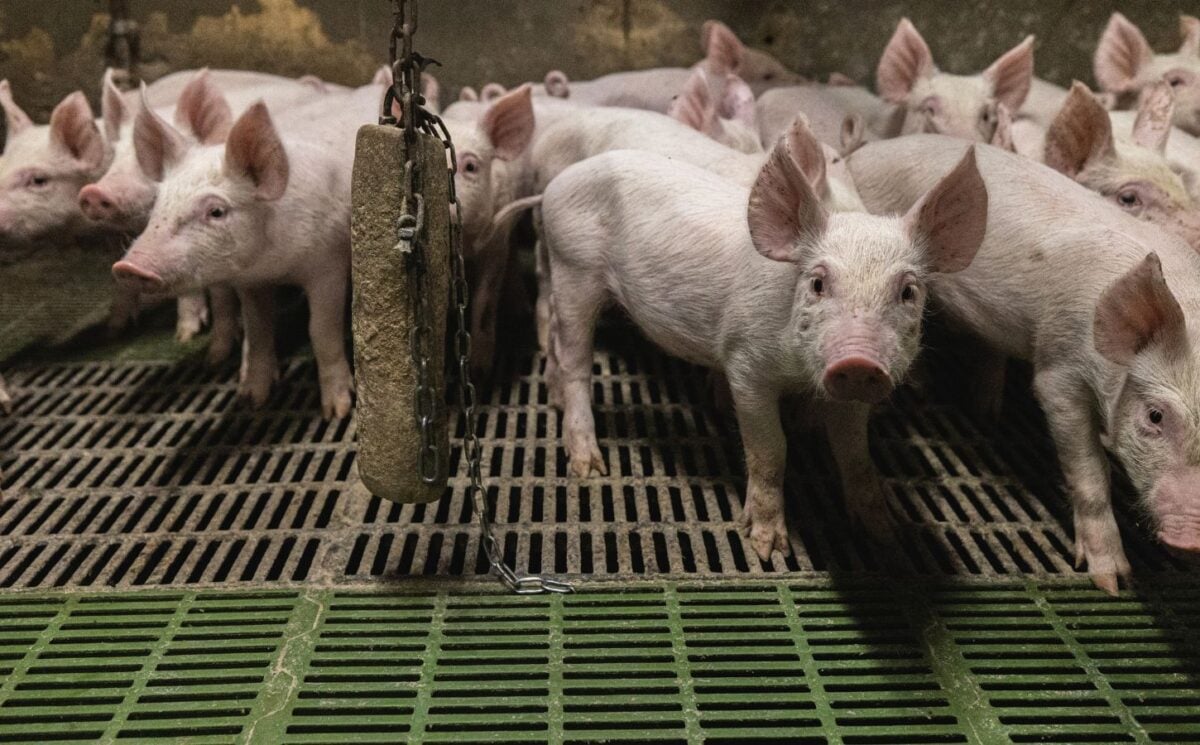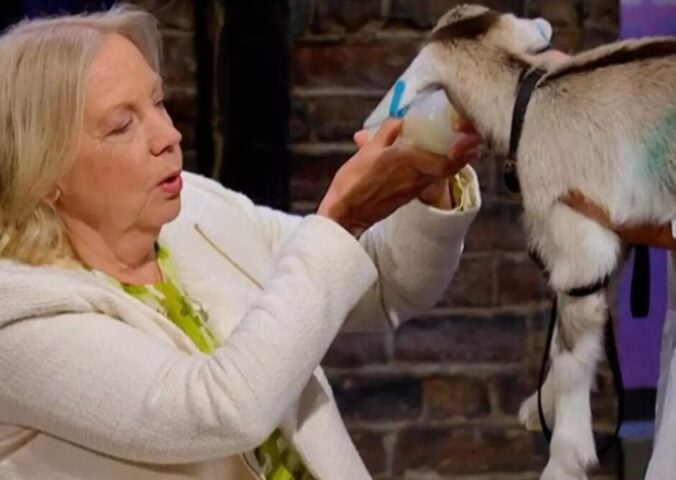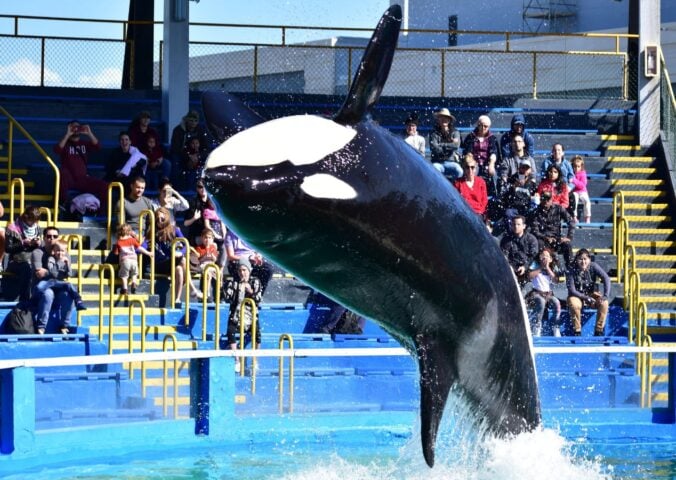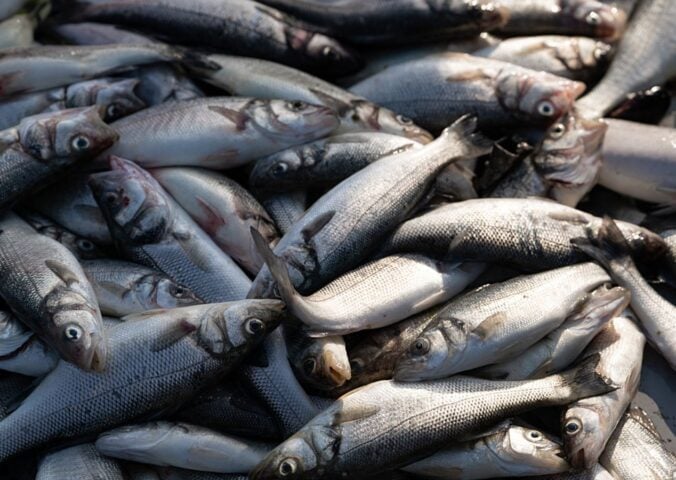Campaigners have raised the alarm over proposals for two mega-farms in Norfolk that would house thousands of pigs and millions of chickens.
PETA is urging people to lodge objections to the plans with Borough Council of King’s Lynn and West Norfolk.
According to the planning application documents, the new chicken farm would hold 870,000 chickens at a time across 20 sheds. This would amount to around 6.7 million a year. The pig farm application proposes to build 14 “finishing units” that would each house up to 1,000 pigs at a time. Over the course of a year, that would be 48,000 pigs being fattened for slaughter there.
Hundreds of objections to the plans have already been submitted to the council. People living in villages close to the proposed sites have campaigned against the farms. PETA is additionally aiming for 50,000 signatures on its petition against the farms, which currently has 14,010.
Significant welfare concerns
PETA says that the huge intensive farms will cause serious suffering to the pigs and chickens kept on them.
The chickens will be raised on the Methwold location from when they are one day old until they are sent to slaughter at 38 to 40 days old. They will never go outside and will be required to have no more than the size of an A4 sheet of paper each.
The pigs will arrive on Feltwell Farm at 12 weeks old and stay there for 12 more weeks until they reach slaughter weight. Feltwell Farm says in its application that it new sheds will allow it to give more space to pigs, moving up from Red Tractor to RSPCA Assured stocking densities.
But PETA warns that the pigs and chickens will still experience stress, frustration, and suffering.
Undercover investigations
The two companies behind the applications, Crown Chicken and Wayland Farms, are both owned by food producer Cranswick. Undercover investigations at Cranswick-owned farms have previously revealed animals living in appalling conditions.
In 2023, Animal Justice Project shared footage it had taken at Bickmarsh Hall, a Red Tractor-approved pig mega-farm. The investigation showed pigs being hit and kicked by workers, who also reportedly used illegal electric prods. One pig with a rectal prolapse was cannibalized by others and an ill piglet was left to be trampled by others for 13 hours before being removed from the pen. Dead pigs were left in bins around the farm.
In 2021, an investigation by Open Cages revealed chickens suffering on an intensive Cranswick-owned farm. Due to selective breeding to make them grow fast, many chickens had leg deformities and couldn’t walk. They lay in their own waste, which burned their skin.
Cranswick is reportedly currently investigating one of its “high-welfare” free range pig farms in Norfolk after footage emerged of a worker beating a pig to death there with an iron bar last summer. At the time of the incident, the farm was operated by pig meat producer Pilgrim’s.
Environmental concerns
Campaigners have raised several environmental concerns about the plans, including air, water, and noise pollution. Locals are worried about increased traffic of large trucks, bad smells from animal waste, and poor air quality.
A Cranswick-operated pig slaughterhouse in Norfolk leaked contaminated liquid into a rare chalk stream in 2019. The company was subsequently fined £75,000 for the pollution.
The number of intensive chicken and pig farms has been rising in the UK, and pollution with them. Sixty percent of fine particulate pollution in the UK comes from ammonia from farms, released from animal manure and synthetic fertilizer. The ammonia drifts to cities and helps create deadly particulate matter.
Waste runoff has caused serious environmental problems around the farms, including algal blooms in the River Wye. Campaigners have recently launched legal action against the Environment Agency and UK government for failing to protect the River Wye from waste generated by the 25 million chickens intensively farmed in its catchment.
Feed for intensively farmed chickens and pigs has been linked to deforestation in South America. In 2019, a million tonnes of imported soy used mainly as feed for chickens may have come from deforested areas of the Amazon.
The rise of mega-farms in the UK
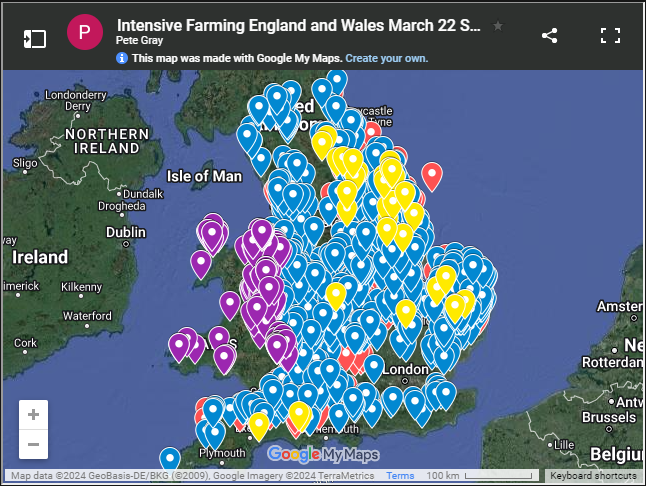
Norfolk already has 74 mega-farms, mainly poultry – more than any other county, according to a 2017 report by the Eastern Daily Press.
A mega-farm is the term used to for farms the equivalent size of a Concentrated Animal Feeding Operation (CAFO) in the US. A mega-farm has at least 125,000 chickens raised for meat, or 82,000 laying hens. A pig mega-farm has 2,500 or more animals, while its 700 for dairy cows and 1,000 for beef cows. The Bureau of Investigative Journalism revealed that there were at least 789 mega-farms as of 2017. Of these, 575 were for birds, 190 for pigs, 21 for dairy and three for beef.
Campaigners and researchers have called for a moratorium on granting planning permission to new intensive animal farms. They say that such farms have been allowed to proliferate without any consideration of their cumulative impacts.
